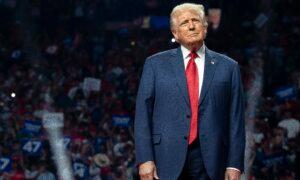A federal judge ruled in July that Smith’s appointment as special counsel violated the U.S. Constitution.
Special counsel Jack Smith has asked the U.S. Court of Appeals for the 11th Circuit to reverse Judge Aileen Cannon’s order dismissing the Justice Department’s prosecution of former President Donald Trump over his handling of classified documents.
“The Attorney General validly appointed the Special Counsel, who is also properly funded,” the special counsel said in a brief to the appellate court on Aug. 26.
“In ruling otherwise, the district court deviated from binding Supreme Court precedent, misconstrued the statutes that authorized the Special Counsel’s appointment, and took inadequate account of the longstanding history of Attorney General appointments of special counsels.”
In a 93-page ruling, Cannon wrote that Smith’s prosecution of the former president “breaches two structural cornerstones of our constitutional scheme—the role of Congress in the appointment of constitutional officers, and the role of Congress in authorizing expenditures by law.”
The ruling raised questions about the Justice Department’s use of special counsels. It came after an opinion in Trump v. United States whereby Supreme Court Justice Clarence Thomas similarly cast doubt on Mr. Smith’s appointment.
Cannon ruled that Mr. Smith was an inferior officer, which requires Congress to authorize the attorney general to appoint him as special counsel. Her ruling pointed to how Congress let the Independent Counsel Act, which allowed the Justice Department to appoint special prosecutors, expire in 1999. While Mr. Smith pointed to other laws to justify his appointment, Judge Cannon rejected those arguments.
Supreme Court Precedent
Smith’s brief disputed Cannon’s ruling on statutory grounds but also took issue with her interpretation of the Supreme Court’s decision in U.S. v. Nixon. That case centered on former President Richard Nixon’s attempt to resist a subpoena from the Special Prosecutor Leon Jaworski.
In that case, the court’s majority defended the special prosecutor’s appointment.
“The regulation gives the Special Prosecutor explicit power to contest the invocation of executive privilege in the process of seeking evidence deemed relevant to the performance of these specially delegated duties.”
Cannon said in July that the court’s wording was dictum, or non-binding on future court decisions.
“That conclusion was a binding holding, or, at least, authoritative dictum,” he said. “Either way, Nixon conclusively defeats the defendants’ challenge to the Special Counsel’s appointment, as every other court to have considered the issue has found.”
His brief also took issue with how Cannon interpreted relevant statutes from Congress and noted that courts rejected challenges to special counsel appointments prior to Cannon’s decision.
“The district court’s reasoning … suggests that every special counsel throughout history who was appointed from outside the Department of Justice and who did not assist a U.S. Attorney was invalidly appointed; that every Attorney General who made such appointments acted ultra vires; that Congress repeatedly overlooked the persistent pattern of errors; and that the Supreme Court itself failed to spot that flaw in Nixon,” the brief read.
This is a developing story and will be updated.
Original News Source Link – Epoch Times
Running For Office? Conservative Campaign Consulting – Election Day Strategies!


